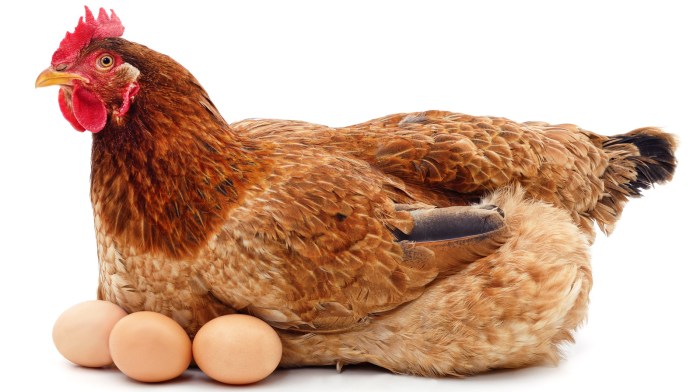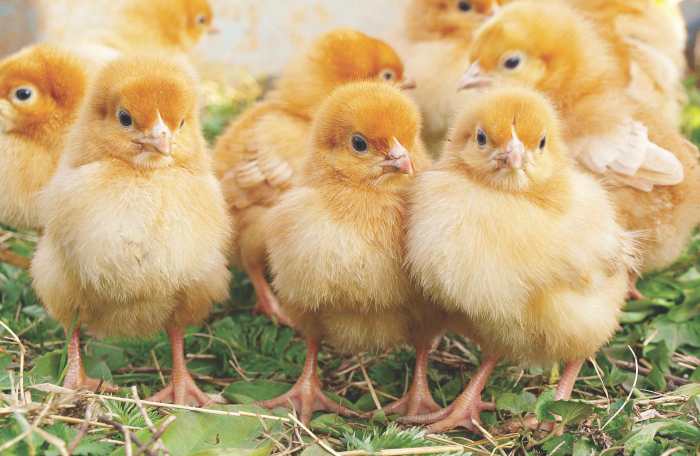Chickens won’t lay eggs, a common concern among poultry keepers, stems from various factors that can disrupt their natural laying patterns. This comprehensive guide delves into the environmental, nutritional, health, breed, and management practices that influence egg production, empowering you with the knowledge to optimize your flock’s laying capabilities.
From understanding the impact of light and temperature to identifying nutrient deficiencies and addressing health issues, this guide provides a holistic approach to troubleshooting egg-laying problems. Additionally, it explores breed-specific characteristics and age-related factors, highlighting the importance of proper housing and management techniques for successful egg production.
Environmental Factors

Environmental factors can significantly impact egg production in chickens. These factors include:
Light
Light plays a crucial role in stimulating egg production. Chickens require a specific amount of light exposure each day to trigger ovulation. The ideal light cycle for egg-laying hens is 14-16 hours of light per day.
Temperature

Temperature also affects egg production. Chickens prefer temperatures between 55-75°F (13-24°C). Extreme temperatures, either too hot or too cold, can disrupt egg-laying patterns.
Noise and Stress
Loud noises and stressful situations can cause hens to stop laying eggs. It is important to provide a calm and quiet environment for chickens to promote optimal egg production.
Nutritional Deficiencies: Chickens Won’t Lay Eggs

Nutritional deficiencies can also affect egg production. Chickens require a balanced diet that includes the following essential nutrients:
Calcium
Calcium is essential for eggshell formation. A lack of calcium can lead to soft-shelled or shell-less eggs.
Protein
Protein is essential for egg production. A lack of protein can result in a decrease in egg size and weight.
Vitamins
Vitamins A, D, and E are essential for egg production. A deficiency in any of these vitamins can lead to a decrease in egg production.
Health Issues
Certain health issues can prevent hens from laying eggs. These issues include:
Parasites
Parasites, such as worms and mites, can cause hens to become sick and stop laying eggs.
Infections
Infections, such as respiratory infections and egg peritonitis, can also prevent hens from laying eggs.
Reproductive Disorders
Reproductive disorders, such as prolapse of the oviduct, can prevent hens from laying eggs.
Breed and Age
The breed and age of a hen can also affect her egg-laying capabilities.
Breed
Different breeds of chickens have different egg-laying capabilities. Some breeds, such as Rhode Island Reds and Plymouth Rocks, are known for their high egg production.
Age
As hens age, their egg production naturally declines. The peak egg-laying period for chickens is between 18-24 months of age.
Housing and Management Practices
Proper housing and management practices are essential for optimal egg production. These practices include:
Nesting Boxes
Chickens need a safe and comfortable place to lay their eggs. Providing adequate nesting boxes is essential for egg production.
Ventilation
Good ventilation is important for the health of chickens and egg production. A well-ventilated coop will help to prevent respiratory problems and other health issues that can affect egg production.
Hygiene
Maintaining a clean and hygienic coop is important for the health of chickens and egg production. Regular cleaning and disinfection of the coop will help to prevent the spread of diseases that can affect egg production.
Molting and Seasonal Changes
Molting and seasonal changes can also affect egg production.
Molting
Molting is a natural process where chickens shed their old feathers and grow new ones. During this process, chickens may stop laying eggs for a period of time.
Seasonal Changes, Chickens won’t lay eggs
Seasonal changes, such as shorter days and colder temperatures, can also affect egg production. In the winter months, chickens may lay fewer eggs or stop laying altogether.
Q&A
Why won’t my young pullets start laying eggs?
Pullets typically begin laying between 18 and 24 weeks of age. If your pullets are older than this and not yet laying, it could indicate nutritional deficiencies, health issues, or stress factors.
What are some common nutritional deficiencies that can affect egg production?
Chickens require a balanced diet that includes adequate calcium, protein, and vitamins. Deficiencies in any of these nutrients can lead to reduced egg production or poor eggshell quality.
How can I tell if my chickens are stressed?
Stressed chickens may exhibit changes in behavior, such as increased feather plucking, reduced appetite, or abnormal vocalizations. Environmental stressors like overcrowding, predators, or loud noises can negatively impact egg production.
